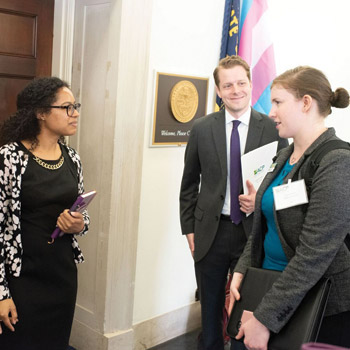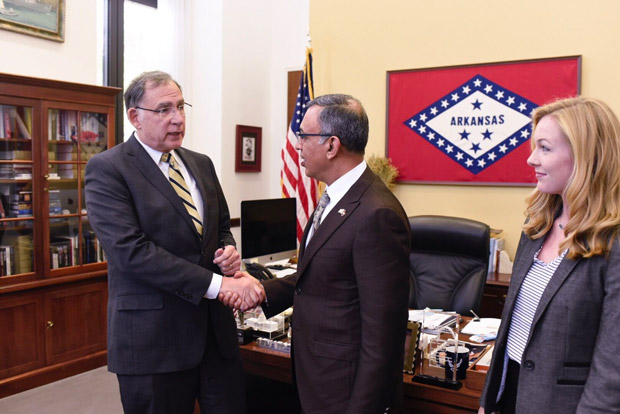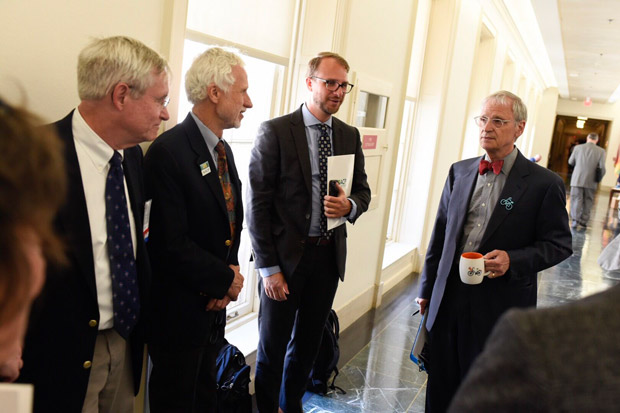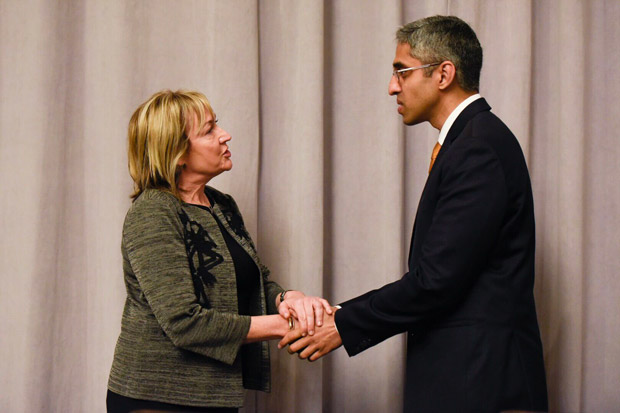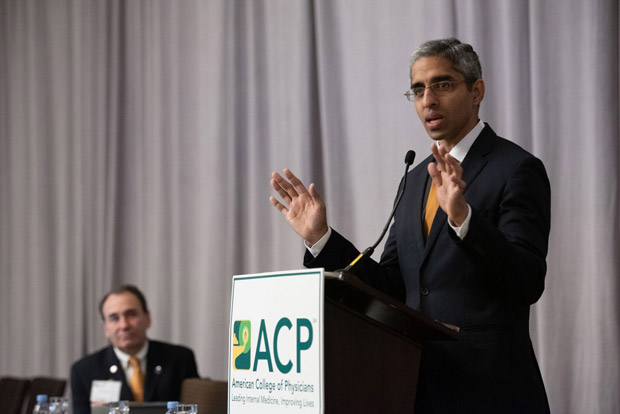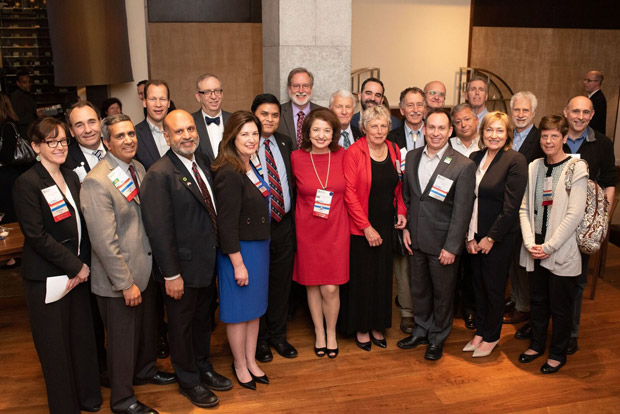Trainees take charge at Leadership Day 2019
Nearly 400 physicians and future doctors from 48 states and Washington, D.C., focused on core priorities of ACP policy during more than 415 meetings with members of Congress and their staff.
Each May, Leadership Day offers ACP Members a chance to represent the College in meetings with members of Congress. This year, the day of advocacy happened to show lawmakers the future of internal medicine, with trainees representing nearly half of all participants.
ACP Medical Student Member Jessica Blank, a second-year medical student at Oregon Health & Science University (OHSU) in Portland, traveled across the country with the Oregon Chapter to learn about the legislative process firsthand. “There's not a focused time for health policy during medical school, so I'm learning directly from representatives, senators, and staff,” she said.
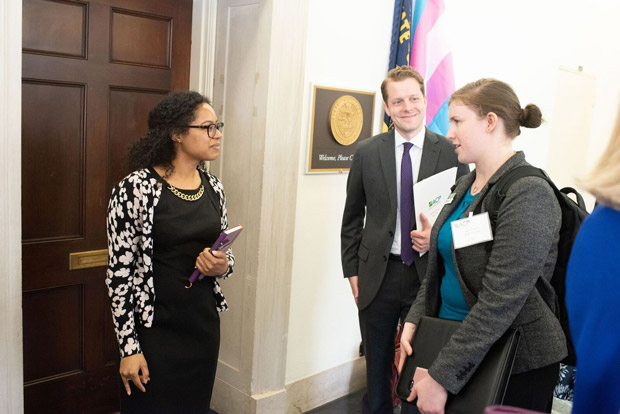
This year, Leadership Day coincided with “health care week” in the House of Representatives, marking a time of important votes on health policy measures, said Robert B. Doherty, ACP's Senior Vice President for Governmental Affairs and Public Policy. “You couldn't have been here at a more important time,” he told participants.
Nearly 400 physicians and future doctors from 48 states and Washington, D.C., focused on reducing prescription drug prices, addressing the public health consequences of firearms, stabilizing the health insurance market, and other priorities during more than 415 meetings with members of Congress and their staff. Of all College priorities, reducing the high cost of prescription drugs seemed to have the most bipartisan support.
When meeting with Rep. Earl Blumenauer (D-OR), Ms. Blank and ACP Resident/Fellow Member Joel Burnett, MD, led discussions on prescription drug pricing and physician workforce issues. Political leaders tend to listen closely to trainees, who represent ongoing advocacy for years to come, said Marianne C. Parshley, MD, FACP, Governor for ACP's Oregon Chapter. “They really love to see the future,” she said.
Dr. Burnett asked Rep. Blumenauer, a member of the House Ways and Means Subcommittee on Health, for his support on key drug-pricing bills, including the Prescription Drug Sunshine, Transparency, Accountability and Reporting (STAR) Act of 2019, the Creating and Restoring Equal Access to Equivalent Samples (CREATES) Act of 2019, and the Medicare Prescription Drug Price Negotiation Act of 2019.
As a resident, he has already seen the consequences of patients being unable to afford their treatments and believes that being an advocate is a necessary part of being a complete doctor. “Two years of practice is long enough to see the limitations of what I can accomplish at the bedside,” said Dr. Burnett, a second-year resident at OHSU. The Oregon lawmaker replied, “We appreciate your assistance in helping us tease out some of these issues.”
The very next day, the House passed a package of health care bills to lower drug prices and shore up the Affordable Care Act by restoring $100 million for outreach and educational activities that had been drastically cut by the Trump administration. The vote was 234 to 183, with Rep. Blumenauer among those voting “aye.”
On the Senate side, Omar T. Atiq, MD, FACP, joined two trainees from the ACP Arkansas Chapter in advocating for support for medical education training and drug-pricing reform. “Younger voices are so important,” he said.
In Arkansas, two new osteopathic schools have tripled the number of medical students in the state, “But we don't have enough residencies,” said Dr. Atiq, Chair of the ACP Board of Governors. The chapter urged Sen. John Boozman (R-AR) to cosponsor and pass the Resident Physician Shortage Reduction Act of 2019, which would lift graduate medical education caps as needed to permit training of an adequate number of primary care physicians.
The chapter also asked the senator to cosponsor and pass the Reforming Evergreening and Manipulation that Extends Drug Years (REMEDY) Act, which was introduced in April and would aid in the FDA's approval of more generic drug applications.
To underscore the need for affordable drugs, ACP Medical Student Member Hunter Cochran told a story about a patient she saw on her family medicine rotation. The teenager had skinned her knees playing volleyball and developed a skin infection, but the cost of antibiotics was so high that her family chose a cheaper but riskier alternative. “They had to go to the pet store and buy fish antibiotics,” said Ms. Cochran, a fourth-year medical student at the University of Arkansas for Medical Sciences in Little Rock.
“There's lots of work being done on this,” including proposed regulations by the Trump administration, Sen. Boozman said. He added that the Florida House in April passed a measure that would allow importing of prescription drugs from Canada with federal approval. “I don't have any problems with that,” although the downside is potentially compromised drug safety, Sen. Boozman said.
Ultimately, the group agreed that physicians should at least know what medications cost so that they can make informed choices with their patients. As an oncologist, Dr. Atiq said that with many drugs costing thousands of dollars per month, “We really don't have choices. For us to know the pricing is crucial.” Sen. Boozman replied, “That would make a huge difference.”

